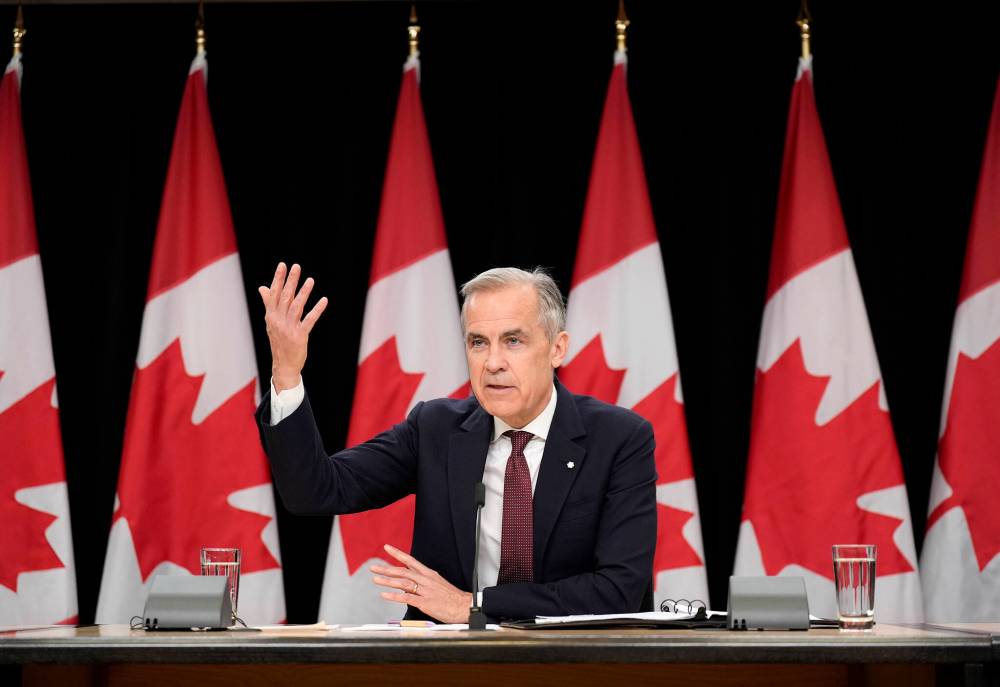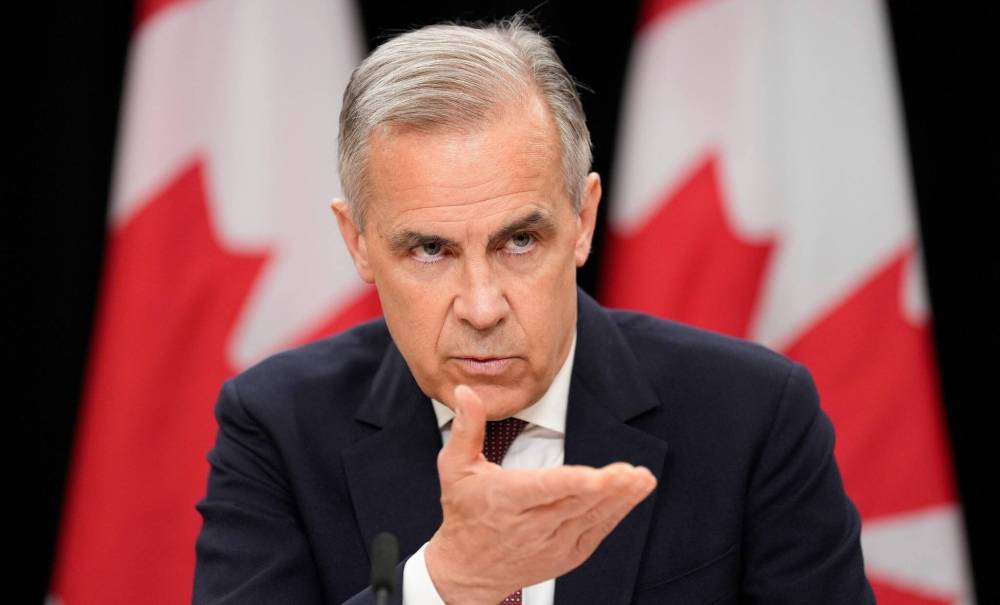A chance to reform Canadian elections
Advertisement
Read this article for free:
or
Already have an account? Log in here »
To continue reading, please subscribe:
Monthly Digital Subscription
$0 for the first 4 weeks*
- Enjoy unlimited reading on winnipegfreepress.com
- Read the E-Edition, our digital replica newspaper
- Access News Break, our award-winning app
- Play interactive puzzles
*No charge for 4 weeks then price increases to the regular rate of $19.95 plus GST every four weeks. Offer available to new and qualified returning subscribers only. Cancel any time.
Monthly Digital Subscription
$4.99/week*
- Enjoy unlimited reading on winnipegfreepress.com
- Read the E-Edition, our digital replica newspaper
- Access News Break, our award-winning app
- Play interactive puzzles
*Billed as $19.95 plus GST every four weeks. Cancel any time.
To continue reading, please subscribe:
Add Free Press access to your Brandon Sun subscription for only an additional
$1 for the first 4 weeks*
*Your next subscription payment will increase by $1.00 and you will be charged $16.99 plus GST for four weeks. After four weeks, your payment will increase to $23.99 plus GST every four weeks.
Read unlimited articles for free today:
or
Already have an account? Log in here »
Hey there, time traveller!
This article was published 06/05/2025 (249 days ago), so information in it may no longer be current.
As a person who doesn’t ever feel represented by any of Canada’s major political parties, or its system of governance at all for that matter, the election’s results were about as auspicious as I could hope for given the landscape.
Some may believe that a majority government is crucial in a time of crisis, so that a single party with a singular vision can lead with a strong mandate. And in some cases that might be true.
But the crisis we face now is not some catastrophe of nature or geopolitical adversary. Well, actually it is both of those things, but neither are the true root of the problem which we need to address.

THE CANADIAN PRESS/Adrian Wyld
Prime Minister Mark Carney’s minority government has an opportunity to start the electoral reform Justin Trudeau promised and didn’t deliver.
What we really need are bold initiatives that address the material conditions which have not only created the problems of climate change and burgeoning fascism, but also fundamental changes to the institutions which have inhibited us from meaningfully addressing these problems thus far.
The problem with majority governments, at least those formed by political parties fully invested in our neoliberal marriage between the political and corporate spheres, is that we cannot expect such revolutionary policy from them.
Majority governments often become enamoured with the status quo, unwilling to disturb the social foundations that handed them their power. But minority governments are often forced to govern boldly to earn their legitimacy.
Historically, minority governments have given Canada some of the most significant contributions to our vaunted social safety net.
It was a minority Liberal government under Lester B. Pearson which laid the groundwork for our current system of universal health care, modern social welfare and the Canadian Pension Plan, all accomplished in co-operation with the NDP.
More recently, we can point to the burgeoning pharmacare and dental plans that the Liberals have been quick to claim credit for, even if they had no such plans until they became a minority and were susceptible to prodding from the NDP. And if we look to many countries in Europe, minority governments are the norm, and they are a model of pluralism compared to, say for example, the stagnant polarization we see south of the border.
I do hope that the NDP takes this opportunity to extract some progressive pledges from Mark Carney’s Liberal minority, because the social safety net these parties helped build has been allowed to decay (or perhaps been purposefully gutted) these pasts decades.
Carney’s feet should also be held to the fire on wealth inequality and climate change, two issues that were sorely lacking from this election’s discourse. But there is another issue that it is the perfect time for the NDP to act upon.
Justin Trudeau dangled the idea of electoral reform in his first campaign, only to promptly shunt the idea aside after sweeping into a majority government. A shining example of a politician suddenly becoming enamoured with the system which delivered them newfound power. And especially with electoral reform, it’s almost a tradition in Canada for the two major parties to complain about our first-past-the-post the system when they lose, only to forget about their complaints the moment they win.
Even Mark Carney flirted with reform during his electoral campaign.
He seemed to acknowledge that the Trudeau Liberals did not honestly engage with the process of enacting electoral reform. Which is obviously true, despite Trudeau’s infuriating claim this past January that one of his biggest regrets was failing to do so. But Carney did go on to state that he would be open to exploring the issue when our immediate other crises are addressed.

Prime Minister Mark Carney speaks during a news conference in Ottawa, Friday, May 2, 2025. THE CANADIAN PRESS/Adrian Wyld
Perhaps the NDP ought to press the matter more urgently, since we would be foolish to take any politician at their word of “maybe later” on this issue.
One of the NDP’s top priorities should be extracting a firm plan and schedule for enacting real democratic reform before the next election. Because in this election we watched our nation drift closer than ever to a two-party system.
People are afraid to vote for a party that truly represents what they believe because they are incentivized to vote strategically against the party that they don’t like. Voters deserve a nuanced system where a mosaic of voices can not only be heard, but represented, geared towards amplifying the diversity of Canadian political philosophy and not for the expediency of neoliberal partisans.
Now is the time to scrap the first-past-the-post system for something more pluralistic and representative. A system then incentivizes more and smaller political parties dedicated to divergent philosophies so Canadians aren’t so often holding their noses as they vote for one of the two political behemoths because it is the only way to have their voices heard.
This is how we can dig our entrenched political parties out of their ruts and force them to consistently take bold initiatives that are in service of the wants of the electorate. Then, not only will we have a system where those ideas often cast to the margins have a chance to be heard and acted upon, we limit the chances of a single large party seizing power and enacting policy that most Canadians do not want.
With these election results we are lucky to have a period of grace where such things are still possible. We would be foolish to put them off any longer.
Alex Passey is a Winnipeg author.


